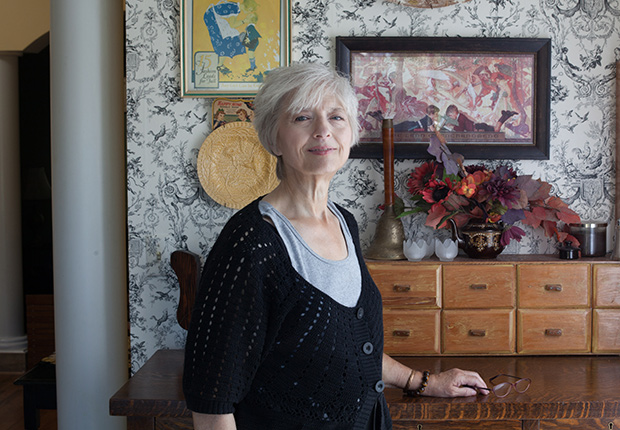AARP Eye Center

By Dana E. Neuts
In November 2008, Kathy Petersen made the difficult decision to care for her 80-year-old mother at home, moving the older woman into her small one-bedroom condo in Bellingham. Petersen, now 67, quit her job as a private long-term caregiver to care for her mother, who had Alzheimer’s disease. They subsisted on Petersen’s Social Security and her mother’s retirement income.
“We were living right on the edge of what we could afford,” Petersen recalled.
While attending a caregiver conference, Petersen discovered the Washington Department of Social and Health Services’ Family Caregiver Support Program, which provides respite and support services for unpaid family caregivers.
“I was willing to give up anything to get help,” she said.
With the help of her family and the Family Caregiver Support Program, Petersen was able to avoid sending her mom to a nursing home before she passed away last November.
Petersen said she “felt very happy” about being able to care for her mother at home.
Areas for improvement
Petersen is one of an estimated 1.25 million unpaid family caregivers in Washington who help their loved ones remain at home. The value of the unpaid services that caregivers in Washington provide to their loved ones is estimated at $10.6 billion per year.
Petersen’s story illustrates that the long-term care services and support system in the state can work. But advocates, including AARP Washington, note that resources are limited and say there is a desperate need to expand and better fund such programs.
Washington ranked second overall in a report released in June by the AARP Public Policy Institute, along with the Commonwealth Fund and SCAN Foundation, ranking all states according to how well they provide long-term care services and supports. But the report cited key areas for improvement by the state, including affordability and access to care, support for family caregivers, and quality of care and quality of life.
For example, Washington ranks seventh in the nation in support for family caregivers. Doug Shadel, AARP Washington state director, says that isn’t good enough.
“While Washington ranks high in the area of caregiving, this isn’t a time to rest on our laurels,” he said.
Currently, the family caregiver program supports less than 1 percent of all unpaid family caregivers in the state. Shadel would like to see the program expanded.
“The program is tiny but mighty,” he said. “We have an innovative, model approach to supporting family caregivers, but we’re investing so little in it that it is not reaching many of those family caregivers.”
Another area of concern is the high cost of long-term care. On a ranking by state from least to most costly nursing home care, Washington came in 31st. The median cost of nursing home care in the state is nearly 2.5 times the median income of those 65 and older.
Washington ranks 34th from the lowest on the cost of private care at home, at 88 percent of the annual median income.
“People have to impoverish themselves. They just don’t have many options,” said Cathy Knight, state director for the Washington Association of Area Agencies on Aging.
Shadel and Knight want the state to study options for helping people pay for long-term care and keeping them in their homes as long as possible.
“It doesn’t matter what our political persuasion is, it seems we’d want to support people helping themselves,” Knight said. “We are counting on our legislature to show leadership.”
AARP is also encouraging states to enact the Caregiver Advise, Record, Enable (CARE) Act. Already approved in some states, the act requires that hospitals and rehabilitation facilities contact the caregiver of record when a patient is being discharged and provide instruction on medical tasks to help care for the patient prior to release.
“Spending more time and giving instruction to family caregivers would reduce readmission rates and help caregivers to be successful and ensure recovery,” Shadel said.
Dana E. Neuts is a writer living in Kent, Wash.























































